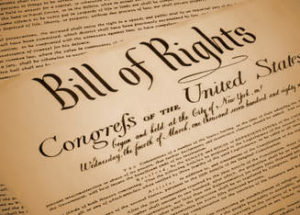
Note: Another Presidential election is upon us. Many have asked me who I intend to vote for, while many others just bemoan the fact that they do not like either major candidate; that they do not feel represented by either party, and a tone of apathy pervades their words. The article that follows is my response to both; my statement of what I believe is really important about our nation and what, therefore, our responsibilities as citizens really are. I hope that everyone votes, but I also hope that when you do vote you keep in mind these ideals and these responsibilities, because they are really, really important…MA
___________________________________________
I was born in the USA and am American through and through, and I truly love my country; but what I really mean in saying that, what I really love, are the ideas of this country—those ideas embodied in the Declaration of Independence, the Bill of Rights and the Constitution. I mean ideas like, “We hold these truths to be self-evident, that all men are created equal, that they are endowed by their creator with certain inalienable rights, that among these are life, liberty and the pursuit of happiness,” and “Congress shall make no law respecting an establishment of religion, or prohibiting the free exercise thereof; or abridging the freedom of speech, or of the press; or the right of the people peaceably to assemble, and to petition the government for a redress of grievances.” God, I love those words! They make me tingle and swell up with pride when I read them. To me the true greatness of our country lies in its ideals.
That said, the fact of the matter is there has often been a vast gap between the reality those founding ideals would dictate if followed, and the reality that has actually manifested across our country’s history. Practically from the moment the Founders first put them down on parchment, thus enshrining those ideals into our nation’s founding documents forever, our country and people have been struggling to live up to them. In evidence of this are many of the things our nation and people have done, both domestically and around the world, in the 240 years since our forefathers, “…brought forth on this continent a new nation, conceived in liberty and dedicated to the proposition that all men are created equal.” [1]
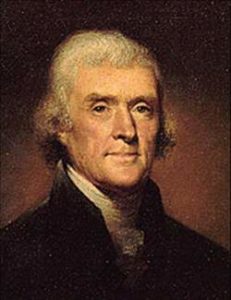
Consider that men like Thomas Jefferson, George Washington and James Madison, three of our key Founders, owned slaves; and that Jefferson, for one, was well aware of the contradictions and hypocrisy our “peculiar institution” [2] posed when compared to the ideals of the new nation he was helping to create. That awareness prompted him to write in his “Notes on the State of Virginia”,[3] with regard to slavery, the following words:
“And can the liberties of a nation be thought secure when we have removed their only firm basis, a conviction in the minds of the people that these liberties are of the gift of God? That they are not to be violated but with his wrath? Indeed I tremble for my country when I reflect that God is just: that his justice cannot sleep for ever…”
Clearly Jefferson was troubled by the immorality and injustice inherent in slavery, as were a number of the other Founders; and yet slavery would persist for four more generations in the United States, until the nation nearly destroyed itself to resolve the issue in the Civil War.
And it wasn’t just Blacks that bore the brunt of racial injustice in this country at that time. Both before and after the Civil War the indigenous tribes of North America were nearly wiped out by one genocidal war after another; their lands stolen and their food sources and cultures destroyed. In a deliberate effort to wipe out the tribes of the Great Plains the United States government engaged in and endorsed the slaughter of the primary food source of the tribes: the American Bison. Once over 50 million buffalo roamed the plains west of the Mississippi River. Reports of early trappers and traders state that a man could stand in one place for three days while watching a bison herd pass by. By the early 1890s nearly all of them were gone, and the tribes with them, destroyed by hunger, disease and slaughter, much of it carried out by the United States Army.
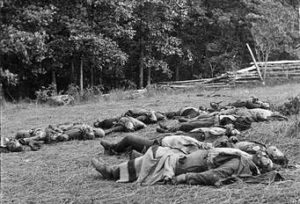
You would think that with the price paid during the Civil War to end slavery, over 600,000 killed on the battlefield or by disease between the North and South, our nation could have moved forward more honorably with regard to race relations between Blacks and Whites. Indeed, for a short time this appeared to be so. In 1865 the 13th Amendment to the Constitution banned slavery. With the passage of the 14th Amendment to the Constitution in 1868, which stated, “All persons born or naturalized in the United States, and subject to the jurisdiction thereof, are citizens of the United States and of the State wherein they reside. No State shall make or enforce any law which shall abridge the privileges or immunities of citizens of the United States; nor shall any State deprive any person of life, liberty, or property, without due process of law; nor deny to any person within its jurisdiction the equal protection of the laws,” it seemed that Blacks at last were being allowed to ascend to the status of full citizen of the country and state they resided in.
It didn’t last, however. With the end of the Reconstruction[4] period in the South following the Civil War, racism, which had never really ended, reared its ugly head once again in the form of state laws that enforced a lower and menial status on Blacks living in the South. These were the notorious “Jim Crow” [5] laws that were passed in most southern states, starting in the late 1880s. As these laws took hold a condition much like “apartheid” [6] in South Africa prevailed for Blacks in the American South. Here is a description of the effect of these laws taken from one historical reference I found: “Jim Crow laws touched every part of life. In South Carolina, black and white textile workers could not work in the same room, enter through the same door, or gaze out of the same window. Many industries wouldn’t hire blacks: Many unions passed rules to exclude them / In Richmond, one could not live on a street unless most of the residents were people one could marry. (One could not marry someone of a different race.) By 1914, Texas had six entire towns in which blacks could not live. Mobile passed a Jim Crow curfew: Blacks could not leave their homes after 10 p.m. Signs marked ‘Whites Only’ or ‘Colored’ hung over doors, ticket windows, and drinking fountains. Georgia had black and white parks. Oklahoma had black and white phone booths. / Prisons, hospitals, and orphanages were segregated as were schools and colleges. In North Carolina, black and white students had to use separate sets of textbooks. In Florida, the books couldn’t even be stored together. Atlanta courts kept two Bibles: one for black witnesses and one for whites. Virginia told fraternal social groups that black and white members could not address each other as ‘Brother.’” [7]
Making things worse was the fact that in several instances cases challenging the legality of these Jim Crow laws, most of which clearly violated the 14th Amendment, made it all the way to the U.S. Supreme Court, only to have the court rule in favor of the racist laws. [8] Thus, if you were a Black person in the American South, for the next 60 years you would suffer under a system which, if not outright slavery, was equally degrading. The culture fostered by Jim Crow was one of fear and subjugation for Blacks. Between 1877 and 1950 it is estimated that nearly 4,000 lynchings of Black people took place in the South. In most instances government officials and law enforcement officers looked the other way and did nothing about these blatant and illegal human rights violations. On the contrary, they often could be found in the crowd of white people who gathered to witness the killings.

And in many ways it wasn’t much better in the North. Between the early years of the 20th century and the late 1950s millions of Blacks fled the Jim Crow South in an effort to gain freedom and security. This large scale movement of Blacks from the South to the North is called by some historians and sociologists “The Great Migration.” The irony is that these Black people were seeking the same things that other immigrants sought in coming to this nation: freedom, and the right to vote, to live, to work, to earn a living and to secure a better future for their children. The only difference was this was their own nation, and they were citizens in it. Most of these Blacks settled in the larger urban centers in the North and West; cities like New York, Philadelphia, Chicago and Detroit, Los Angeles and Oakland. These cities were ill equipped to handle this influx of humanity and had little familiarity with the Blacks and their culture. The result was the newcomers were met with suspicion; were given the most menial jobs for the lowest pay. They often were not allowed in unions or trades. Black men scraping for jobs were often used as strike breakers, which built ridges between them and their White counterparts. In general they were economically shut out, and had to settle, therefore, in sub-standard housing in sub-standard sections of the cities they relocated to. By the mid-1950s the conditions that generally prevailed for Blacks in our country were a suppressive “Jim Crow” South that overtly denied them their rights under law, and a suppressive economic situation in the North and West, less overt perhaps, but nearly as degrading.
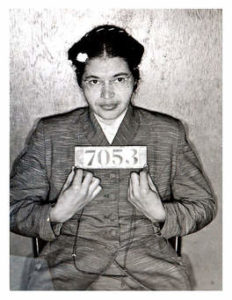
These were the circumstances that at last led to the Civil Rights movement in the United States from the mid 1950s through the 1960s and beyond. On December 1st, 1955, in Montgomery, Alabama, a 42 year old Black woman named Rosa Parks was asked by a White bus driver to give up her seat on the bus so a White person could sit down. She refused and was arrested and convicted of violating a “Jim Crow” city ordinance that allowed bus drivers to enforce such discrimination. This action by Ms. Parks led to what became known as “The Montgomery Bus Boycott”, a protest that marked the advent of Martin Luther King as a Civil Rights leader. From that point on various locations all across the South, and later the urban centers in the North, were increasingly subjected to the non-violent protest tactics of King and his allies in their efforts to cause the changes needed to bring to American Black people the rights that should have been theirs by birth.
Meanwhile, in the years following World War II our country’s sacred ideals were further trashed by the implementation of a foreign policy that embraced rabid anti-communism as its central principal; and which, under that banner, involved us illegally by covert means in the internal affairs of nation after nation around the world: rigging elections; overthrowing democratically elected leaders; installing and supporting corrupt dictators, and even assassination. Most of this was accomplished through the machinations of the Central Intelligence Agency and its allies in the U.S. government and in what President Eisenhower so correctly called “The Military-Industrial Complex,” which he warned us about in his farewell address to the nation in 1961.[9] Unfortunately, most Americans at the time had no idea what he was talking about. Most of us had bought thoroughly the necessity of having our nation armed to the teeth to offset the threat of the Soviet Union and what was promoted as a monolithic, world Communist movement. To deny a person his rights, or a nation its sovereignty, all it took in those days, was to utter their name in the same breath with the word “Communist.” [10] This was the “Cold War”, and under that justification the CIA literally ran amok around the planet doing the actions described above.

To be fair to the American people, the vast majority had no idea what was being done in their name by their government’s covert intelligence apparatus. The actual government officials doing it, people like John Foster Dulles (Secretary of State under Eisenhower) and his brother Allen Dulles [11](Director of CIA from 1953 -1961) and their henchmen did, however; and their actions poisoned the repute of our nation in many countries around the world. This gives us new insight into the statement made by President George Bush a few years back when, in the wake of the 9/11 terrorist attacks, someone asked him in a press conference, “Why do they hate us?” Bush’s response was that they hate us because of “our freedom.” Could he really be that stupid? Understand the accumulated effect of actions like those described above, done by our government and in our name, and you are much closer to understanding why people in other nations may dislike and not trust us; or may want to get even with us.
The most tragic example of this was the U.S. involvement in Vietnam, a nation that in the late 1940s and early ‘50s was struggling to throw off their French colonial shackles. When Ho Chi Minh, who was a Communist, and his Viet Minh (the name “Viet Minh” is contracted from a phrase which means “League for the Independence of Vietnam”) rebel army finally ousted the French in 1954 after 7 years of warfare it looked like the Vietnamese would at last have their own nation. Alas, it was not to be—at least not completely. Through the Dulles brothers and the CIA the United States stepped in and engineered the creation of a new nation, South Vietnam. While Ho Chi Minh and the Viet Minh were establishing the Democratic Republic of Vietnam in the country’s northern section (at the time called North Vietnam), in the South, using their unlimited funds and an unbelievable array of covert operations, the CIA created a new government, installed an expatriate Catholic returned named Ngo Dinh Diem [12]as President, created an army for him and trained it, all while providing millions and millions of dollars worth of aid and military equipment. Without the CIA and its operatives, allies and aid, Diem would not have lasted two weeks in his new office. Indeed, there would not have been an office for him to inhabit. With the CIA and U.S. support he was able to consolidate his power and by the late 1950’s was ruling the South with an increasingly arbitrary hand. In effect he had become a dictator, complete with his own secret police run by his brother and propped up by the United States; and increasingly opposed by the people he had alienated in the South and by guerrillas infiltrating from the North who still wanted to create a unified homeland.
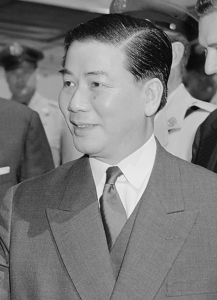
Today many Americans of my generation think of the Vietnam War in terms of the images they saw on their TVs in the nightly news during the mid 1960s. At the time most of us thought of it as a necessary step in halting the world wide, monolithic Communist movement, which was a complete fiction. We had, most of us, drunk the Kool-Aid. Few of us realized that covert operatives of our government had been involved in Vietnam for decades, first helping the French, and then once they were defeated, in the fashion described above. This is the real story of the Vietnam War and how it came to be. By the late 1960s the United States was subjecting this tiny third world nation to some of the most intense bombing the world has ever seen, while over 500,000 U.S. troops were on the ground there. Toxic defoliants were put into use by our forces that poisoned the ground and water for decades after and that have resulted in large scale birth defects and physical problems for the Vietnamese people. By the time the United States withdrew from Vietnam in the mid 1970s over two million Vietnamese and over fifty eight thousand American military personnel had been killed. In addition the social fabric of our nation had been ripped apart. By the late 1960s, sensing the injustice and futility of what our country was doing in that small, Southeast Asian country, many American people and students took to the streets in protest, the images of which added to the images of the war on the nightly news. The result was that it appeared our country was coming apart at the seams.
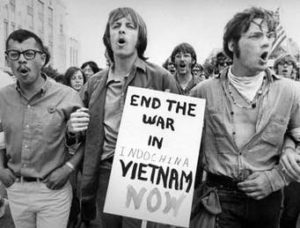
In many ways our nation has never recovered from the Vietnam War. It was during this period that a deep distrust of their own government was laid in to the American people that persists to this day. In its own way the same is true of the situation with race relations in this country, which has a sad and much longer history. Today’s “Black Lives Matter” movement is just the most recent outgrowth in a track emanating from the Civil Rights movement of a half century ago and the Civil War and outright slavery a century before that. Having seen some of the videos of the recent killings of Blacks by police, I cannot argue with the point that NFL quarterback Colin Kaepernik and other Black leaders are trying to make. Perhaps you disagree with how they are making their point, but it is a point that needs to be made nonetheless. Theirs is a protest that I believe we should all make, for when the rights of one person are violated, the rights of all are diminished.
But while doing so we should also realize that the true target of our protest can be summed up in one word— “injustice.” Without knowing what a person’s rights truly are, or the freedoms they possess by virtue of being born, “injustice” would be a word without definition, and therein exists the brilliance of the founding documents of our nation. Those founding statements define our rights and freedoms clearly, and thereby provide the standard we should all aspire to, whether person to person or nation to nation.
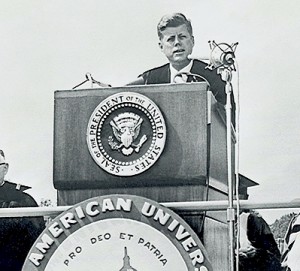
This last point is incredibly important. Virtually all social unrest has injustice as its root cause. If we want to end war and eliminate violence, if we want real peace, then we all need to work for justice; and this starts with understanding and acknowledging the inherent rights of people. In one of his great speeches, what is now called his “Peace Speech”, given as a commencement address at American University on June 10, 1963, President John F. Kennedy made the same point when he said, “… ‘When a man’s ways please the lord,’ the Scriptures tell us, ‘he maketh even his enemies to be at peace with him.’ And is not peace, in the last analysis, basically a matter of human rights—the right to live our lives without fear of devastation—the right to breathe air as nature provided it—the right of future generations to a healthy existence?”
Barely 24 hours later, on June 11th, 1963, JFK reinforced the point in a speech he gave addressing the subject of civil rights, in which he stated, “We are confronted primarily with a moral issue. It is as old as the Scriptures and is as clear as the American Constitution. / The heart of the question is whether all Americans are to be afforded equal rights and equal opportunities, whether we are going to treat our fellow Americans as we want to be treated. If an American, because his skin is dark, cannot eat lunch in a restaurant open to the public, if he cannot send his children to the best public school available, if he cannot vote for the public officials who will represent him, if, in short, he cannot enjoy the full and free life which all of us want, then who among us would be content to have the color of his skin changed and stand in his place? Who among us would then be content with the counsels of patience and delay? / One hundred years of delay have passed since President Lincoln freed the slaves, yet their heirs, their grandsons, are not fully free. They are not yet freed from the bonds of injustice. They are not yet freed from social and economic oppression. And this Nation, for all its hopes and all its boasts, will not be fully free until all its citizens are free.”

As can be seen from his words, I believe Kennedy grasped the point I made at the outset of this article: that the real greatness of the United States lies not in its history, its material accomplishments, its military or its victories in war, but in the ideals this nation was founded upon; and in the hope that one day the reality envisioned by them will match the reality that we the people and our government create every day at home and around the world.
I truly hope that day comes soon, for it will be only then that the inherent promise in our founding documents will manifest for us all, and that, as Martin Luther King said over 50 years ago…
“WE WILL BE ABLE TO JOIN HANDS AND SING IN THE WORDS OF THE OLD NEGRO SPIRITUAL, ‘FREE AT LAST, FREE AT LAST, THANK GOD ALMIGHTY, WE ARE FREE AT LAST.’ ” [13]
Copyright © 2016
By Mark Arnold
All Rights reserved
[1] From the Gettysburg Address, delivered by President Abraham Lincoln on the Gettysburg battlefield, 19 November, 1863.
[2] “Peculiar Institution” or “Our Peculiar Institution” is and was a euphemism for slavery in the American South. In this sense the word “peculiar” means “unique to, belonging to or identified with a person, group or thing.”
[3] “Notes on the State of Virginia”, originally completed in 1781, is the only full length book written and published by Thomas Jefferson. It is widely considered the most important American book published before 1800. In it Jefferson wrote of his beliefs regarding the separation of church and state, constitutional government, checks and balances, and individual liberty. He also discussed his beliefs regarding slavery, stating that he did not think that Whites and Blacks could live together in a free society.
[4] The “Reconstruction Era” (1865-1877) following the Civil War took place chiefly in the defeated South. It was marked by U.S. Army occupation and enforcement of programs designed to enforce equal rights for the freed Blacks, including the building of schools, the right to vote and even hold office. With the end of the Reconstruction period the South became dominated by the Jim Crow laws described in this article.
[5] “Jim Crow” was a derogatory term for a Black person that started in the 1830s, most likely from a popular song and dance called “Jump Jim Crow” which was performed in “black face” at the time by a white comedian named Thomas Dartmouth Rice. The song was supposedly inspired by a disabled Black slave named Jim Cuff or Jim Crow.
[6] “Apartheid” is an Afrikaans word meaning “separateness” or “the state of being apart.” The word was used to describe the government enforced segregation in South Africa, wherein the White minority systematically deprived the Black majority of their human rights.
[7] From “A Brief History of Jim Crow”, from the website of the Constitutional Rights Foundation
[8] In 1890 the Louisiana General Assembly passed a law to prevent Black and White people from riding together on railroads. Plessy v. Ferguson, a case challenging the law, reached the U.S. Supreme Court in 1896. Upholding the law, the court said that public facilities for Blacks and Whites could be “separate but equal.” Soon, throughout the South, they had to be separate.
[9] On 17 January, 1961 President Dwight Eisenhower, after 2 terms in office, gave his last speech to the American people, widely called his “farewell speech.” In the speech he warned Americans of the rise of a new threat to our freedoms and Constitutional institutions, which he called the “Military Industrial Complex”, a coalition of Military, Intelligence and Industrial power that had come to dominate much of government during the Cold War era. Eisenhower’s speech today can be seen on You Tube.
[10] In the early 1950s a US Senator from Wisconsin named Joe McCarthy (1908-1957) used his Senate seat and membership on a key Senate investigative subcommittee to launch inquiries into what he claimed were Communist affiliations of a number of officials, agencies and even churches. His practices were human rights violations that destroyed careers and lives in the process. His freewheeling style caused both the Senate and the subcommittee to revise the rules governing future investigations, and prompted the courts to act to protect the Constitutional rights of witnesses at Congressional hearings.
[11] There is not enough room in either this footnote or article to chronicle the impact of the Dulles brothers on U.S. history during the 20th century and on up to present time, both before and after World War II. Both men played key roles before the war as attorneys for the international law firm Sullivan and Cromwell representing many business clients investing in Nazi Germany. Allen Dulles was the OSS Bern, Switzerland Chief of Station during the war and was instrumental in aiding thousands of Nazis to escape persecution after the war though Operation Paperclip; the US program to remove much of the Nazi Intelligence apparatus for use by the US and allies against the Russians during the Cold War. Later both Dulles brothers held key posts in the Eisenhower administration, Allen CIA Chief and John Foster Secretary of State. In those capacities they were instrumental in promoting the anti-Communist Cold War actions of the United States, including creating the Vietnam War. For a great book on the career and life of Allen Dulles read “The Devil’s Chessboard” by David Talbot.
[12] Ngo Dinh Diem (1901-1963) was a Catholic anti-Communist Vietnamese nationalist who fled Vietnam in 1950 during the First Indochina War when he was threatened with assassination by Viet Minh nationalists loyal to Ho Chi Minh. With the French defeat at Dien Bien Phu in 1954 he returned to Vietnam and with the help of the CIA and legendary spy Edward Lansdale he was installed as President of South Vietnam. He remained in office until increasing unrest led to a coup in November of 1963. During the coup he was murdered along with his brother Ngo Dinh Nhu, who was Diem’s chief advisor and head of the secret police.
[13] Quoted from Martin Luther King’s “I Have a Dream” speech delivered to 250,000 people on August 28, 1963 during the “March on Washington for Jobs and Freedom” in Washington DC.

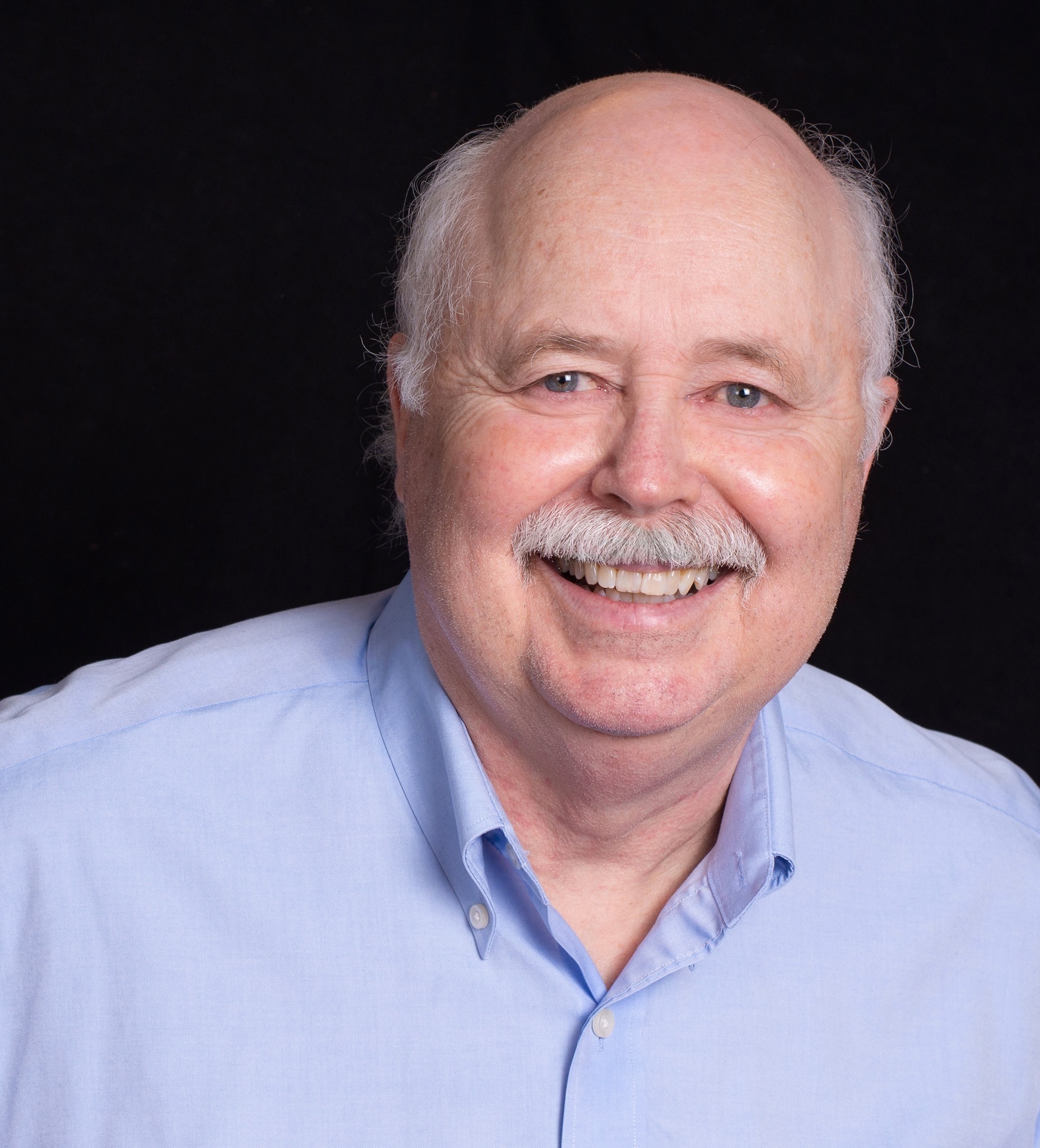
4 Responses
Awesome
Thanks Pete!
I never used to like history in school. Probably because it was filled with lies. But when I read your articles I am intensely interested, and the truth rings true! Thanks for taking the time to write the articles you do. They are meticulously well researched, contain great insight, and bring the past to life, so we can all create a better life for all in the future!
Thank you, Tony, for the great acknowledgement. I share with you that desire for a better future, and believe with an increased understanding of the past we can chart a better and more positive course for all in the years to come. Thanks again and say “Hi” to Helen for me. L, Mark